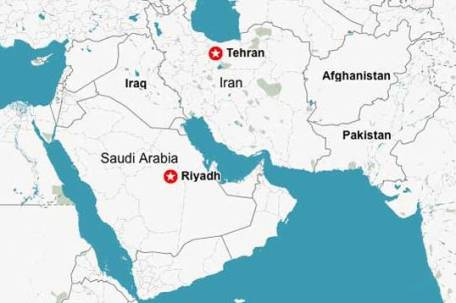Saudi Arabia Worried with an Upset of the Balance of Threat

IRD: Amid tensions between Iran and the West over plans to boycott Iran's oil sales, Riyadh has decided to chime in and guarantee European countries that it will compensate for their shortage of energy by ramping up its oil production. The Saudis’ decision has infuriated Iranian officials, compelling the conservative Ali Larijani to warn ‘certain Arab countries’ to correct their stance. Iranian Diplomacy has interviewed Middle East affairs analyst Ali-Akbar Assadi on the tension between Tehran and Riyadh:
IRD: Majles Speaker Ali Larijani has asked Middle East regimes to not blindly follow the US’ policies. He has also added that if Iran is set ablaze, its fire will spread across the region. How do you analyze his strong remarks?
AAA: Obviously he is addressing those Arab countries of the region that are assisting Washington’s plans to tighten the cordon around Iran. For more than thirty years, the Islamic Republic has been more or less in a state of boycott, but pressures have increasingly intensified in recent months; pressures orchestrated by the US and the European Union. The West is trying to bring the Middle East states, and Iran's main trade partners in Asia such as China, India, Japan and South Korea, on board. And they are encouraging the Saudi Arabia, the UAE and Qatar to fill any gap which may emerge with sanctions on Iran's oil exports. Saudi Arabia has unreservedly expressed its readiness to replace the likely deficit resulting from a boycott. So it is clear which country Iran is addressing, though it may be expressed implicitly.
IRD: Why has Riyadh embarked on this path?
AAA: Well, you know that Iran's regional influence has largely increased with the development of its nuclear technology, the fall of Saddam Hussein, the rise of Shi’a-dominated government in Iraq, and the Arab Spring. The balance of power has tilted in favor of Iran, as has, to the Saudis’ fear, the balance of threat. They deem Iran's burgeoning clout as a threat to their strategic interests and ultimately their traditional, volatile ruling structure.
IRD: But Saudi Arabia’s anti-Iran policy could backfire.
AAA: I think the Saudis are aware of this contingency. But the tensions have hit a level that brinkmanship has come into vogue. It is not confined to Iran and Saudi Arabia. I think several other actors in the region are following the same strategy.
IRD: What is the medium-term result of the tensions between Tehran and Riyadh?

